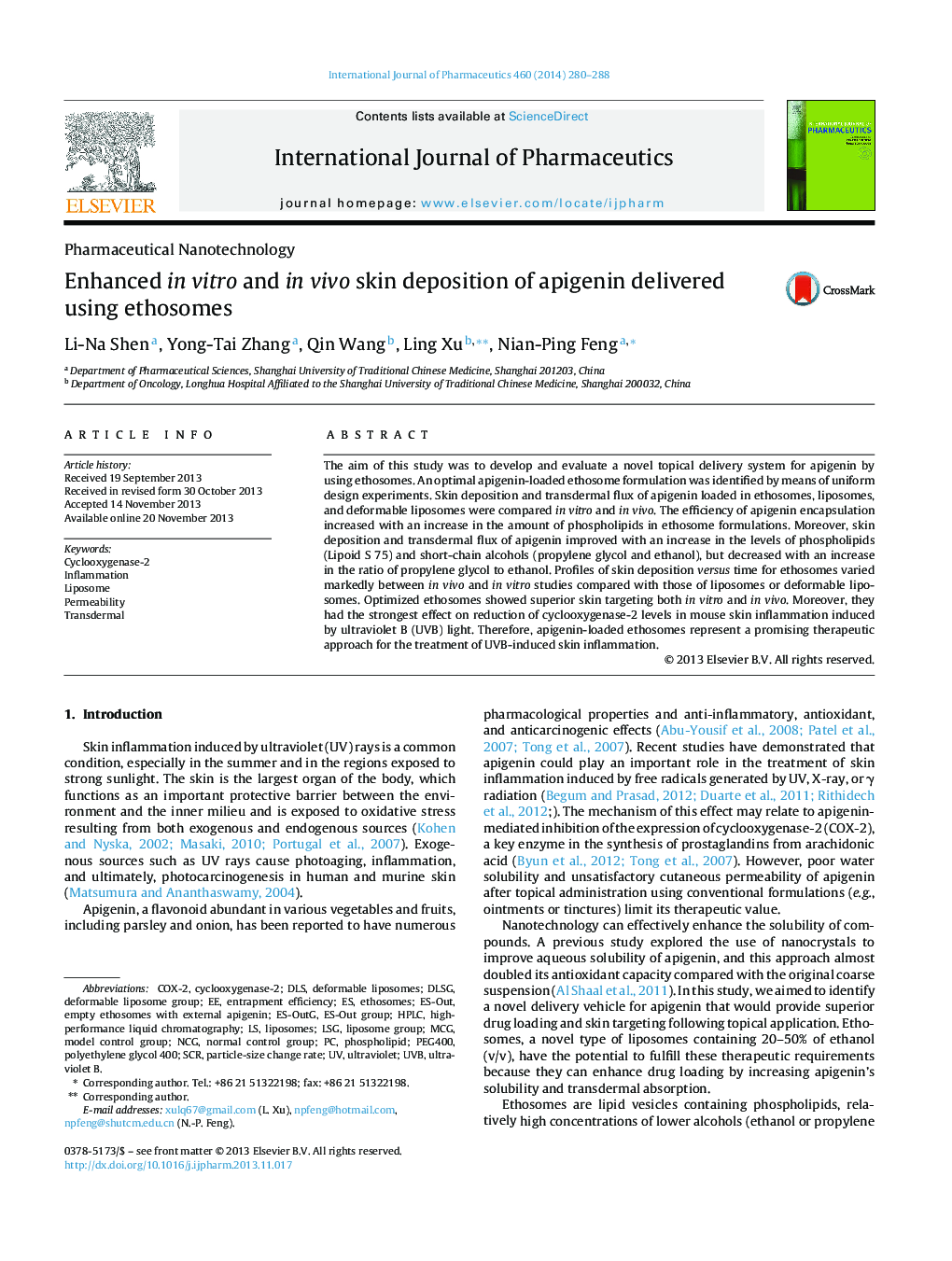| Article ID | Journal | Published Year | Pages | File Type |
|---|---|---|---|---|
| 2502009 | International Journal of Pharmaceutics | 2014 | 9 Pages |
The aim of this study was to develop and evaluate a novel topical delivery system for apigenin by using ethosomes. An optimal apigenin-loaded ethosome formulation was identified by means of uniform design experiments. Skin deposition and transdermal flux of apigenin loaded in ethosomes, liposomes, and deformable liposomes were compared in vitro and in vivo. The efficiency of apigenin encapsulation increased with an increase in the amount of phospholipids in ethosome formulations. Moreover, skin deposition and transdermal flux of apigenin improved with an increase in the levels of phospholipids (Lipoid S 75) and short-chain alcohols (propylene glycol and ethanol), but decreased with an increase in the ratio of propylene glycol to ethanol. Profiles of skin deposition versus time for ethosomes varied markedly between in vivo and in vitro studies compared with those of liposomes or deformable liposomes. Optimized ethosomes showed superior skin targeting both in vitro and in vivo. Moreover, they had the strongest effect on reduction of cyclooxygenase-2 levels in mouse skin inflammation induced by ultraviolet B (UVB) light. Therefore, apigenin-loaded ethosomes represent a promising therapeutic approach for the treatment of UVB-induced skin inflammation.
Graphical abstractFigure optionsDownload full-size imageDownload high-quality image (230 K)Download as PowerPoint slide
